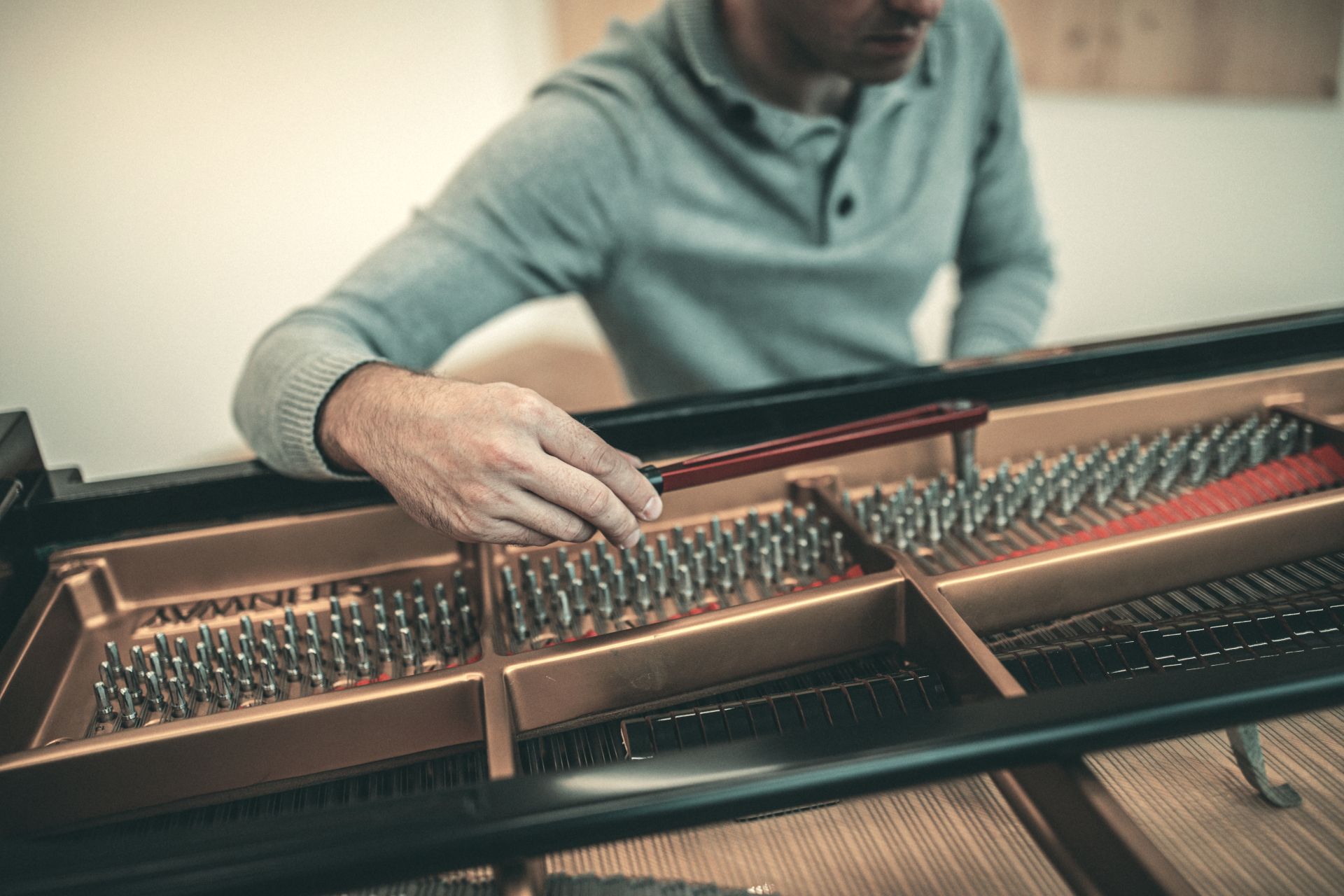Tuning
Regular tuning of your instrument guarantees not only more pleasure in making music but also a safeguarding of the instrument's value. Possible damage can be detected or prevented in time.
We love tuning pianos and grand pianos. Every instrument should sound its inherent quality, regardless of whether it is a piano for private use or a concert grand piano for professional purposes.
Thus, our customers include: Private individuals, musicians, schools, high schools, music schools, parishes, retirement homes and concert institutions. A large part of our customers have been with us for decades, even in the second generation.
By default, the instruments are tuned to 442 Hz, but on request we are happy to tune to another frequency (e.g. 440 Hz, 432 Hz). This is always done in consultation with the technician on site. If you have any special wishes, please let us know on the phone when making the appointment.
We attach great importance to sustainable service. This includes, in addition to tuning, cleaning, readjustment, re-intonation and advice on pest infestation (e.g. moths) and the subject of humidity.

FAQ
We give a 2-year guarantee on mechanical functions. The prerequisite is correct handling and the right location of the instrument.
Approx. 20 years, then the strings should be replaced. Exceptions are made in very humid locations or accidents with liquids, etc.
There are two reasons why hammer heads have to be replaced. Either they are so heavily played that the felt has hardened and the sound suffers (if necessary, this can also be corrected with voicing). Another possibility is that the strings have played heavily into the felt (deep grooves are created). On the one hand, this has an effect on the sound, but also on the axles that guide the hammer shaft. To avoid severe damage, the hammer heads must be replaced.
In principle, yes. However, on some models the space is too small and we cannot install the system afterwards. In any case, compromises have to be made for an instrument with a muting system installed later. So it is not to be compared with the brand-new instruments.
In addition to the annual tuning, the instrument should also be checked and reworked in regulation. This is usually done by the tuner during the tuning job.
However, after a few years, more extensive work may be required. The felts on the hammer heads become very worn over time and have to be sanded down or even replaced. The keys are also exposed to a lot of friction and, depending on use, need an overhaul every few years. As the strings are made of steel (and partly of copper), they start to oxidise over time and this has a bad effect on the sound. We therefore recommend replacing the strings after 20 years at the latest.
For small jobs, the technician can also repair the instrument at home. Simple regulation work, for example. For all major work, however, the instrument must be brought to the workshop – there we have enough space and all the tools at hand. This way, nothing can surprise us when we take a closer look at the instrument.
It is highly recommended to take the instrument to the workshop. Only a few jobs can be done at home. For many jobs, there is not enough space or equipment at home, or it would simply be too expensive to bring all the tools.
Because many repairs take several weeks, the travel costs for the technician would also be too expensive.
The duration of the repair depends on the work. For a major overhaul (new strings, complete overhaul of the action, treatment of the keys,…) at least one month must be expected.
With most repairs there are some idle times, because wood has to be dried or glue spots have to harden. Especially with new strings, the instrument needs some time until it can hold its tuning.

It is worth mentioning that it is not out of tune, which is an amazing level of quality that one would not expect coming from Switzerland.









